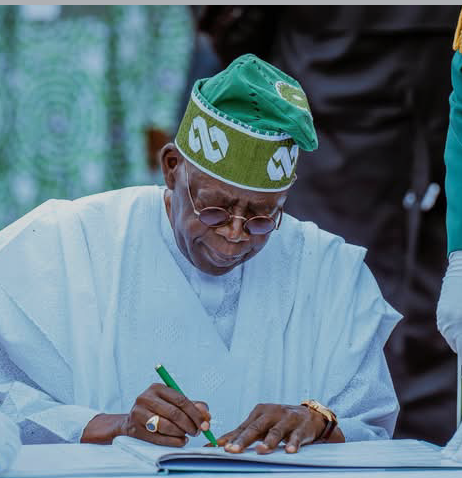It is ludicrous for a nation wallowing in quasi-democratic tenets to devote twenty-four hours to the celebration of democracy that is in principle but not in practice. It is a case of a butterfly imagining itself to be a bird.
Nigeria, the so-called Giant of Africa, often boasts of being the largest democracy on the continent. But beyond the ceremonial speeches and flag-waving anniversaries, one is compelled to ask: is there truly a functioning democracy in Nigeria, or is the country merely adrift in a sea of self-deception, celebrating an illusion dressed in democratic garb? The disturbing truth is that Nigeria’s democratic pretensions are gravely undermined by systemic failings that mock the very principles of genuine popular rule.
At the heart of this crisis lies the glaring absence of true federalism. Nigeria remains structurally beholden to an overcentralised system where states function as administrative outposts of an almighty federal government rather than autonomous federating units. Fiscal dependence on the centre, the emasculation of local governance, and the manipulation of federal appointments for sectional or partisan advantage have all conspired to make federalism in Nigeria a hollow concept; a skeletal framework stripped of its democratic flesh.
Moreover, the _Fourth Estate of the Realm_ , the press, has been reduced to a stifled voice in the wilderness. Journalists operate under the constant shadow of intimidation, harassment, and censorship. Laws on cybercrime and public incitement have become sinister tools for silencing dissent, rather than protecting the public good. Investigative reporting is fraught with peril; the consequence of daring to speak truth to power is often brutal suppression or financial strangulation. A democracy without a free, vibrant press is but a corpse in ceremonial attire.
Equally disconcerting is the systematic subversion of the rule of law. The judiciary, ideally the bastion of liberty and constitutionalism, is increasingly perceived as compromised— beholden to executive manipulation or political patronage. Selective enforcement of court rulings, prolonged detentions without trial, and politically motivated prosecutions have shredded the fabric of legal integrity. In such an environment, the rule of law degenerates into mere rhetoric, invoked only when expedient to the ruling elite.
Electoral processes, the very lifeblood of any democracy, remain deeply flawed. The ritual of periodic elections has become a cynical theatre of vote-buying, thuggery, intimidation, and manipulated results. The will of the electorate is often subverted by systemic rigging, voter suppression, and judicial endorsements of electoral malpractice. What remains is not democracy in practice but a cynical simulation— a façade designed to placate international observers and pacify a weary populace.
The political elite, meanwhile, governs with impunity, insulated from accountability by the protective shield of prebendalism and cronyism. Public office has degenerated into a means of private accumulation rather than public service. Policy-making is driven less by the needs of the governed than by the greed of the governing. Corruption thrives in this toxic ecosystem, fed by opaque budgets, unexecuted contracts, and compromised oversight institutions. In such a context, the celebration of democracy rings hollow; a perfunctory ritual devoid of substance.
Socio-economic realities further mock the pretence of democracy. In a land where poverty, unemployment, and infrastructural decay are rampant, the people remain disempowered, robbed of the economic agency essential to meaningful participation in governance. Bread-and-butter issues are sacrificed on the altar of ethnic politics and sectional chauvinism, as leaders stoke division to mask their own failures. A hungry, marginalised citizenry cannot exercise democratic rights in any real sense; deprivation itself becomes a tool of political control.
So, what exactly is Nigeria celebrating? Is it the hollow form of democracy without its spirit, or the endurance of a weary people shackled to a system that denies them genuine representation and participation? Until true federalism is instituted, press freedom guaranteed, the rule of law restored, elections sanitised, and leadership redefined as service rather than self-enrichment and self-aggrandisement, Nigeria’s democratic festivities will remain a charade. A bitter reminder of promises betrayed and potentially squandered of our common patrimony.
**Kelly Odaro a journalist is a Senior academic staff of the Federal Polytechnic Auchi**
